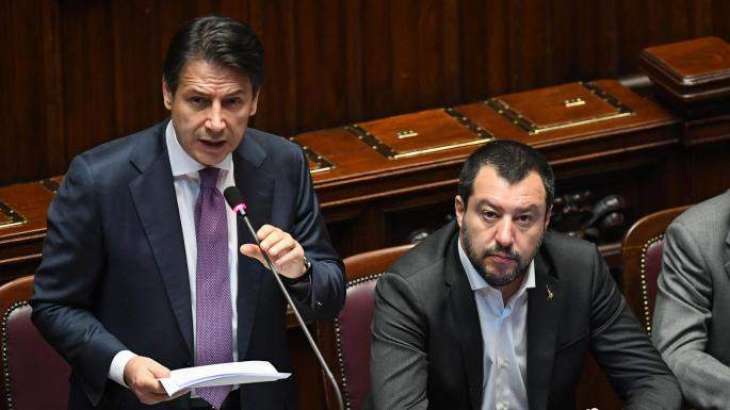The Five Star Movement (M5S) anti-establishment political party in Italy, which has recently changed a coalition partner and formed a new government with mainstream center-left Democratic Party (PD), is going to maintain its pro-Russia stance, Francesco Berti, a member of the Italian Chamber of Deputies from M5S, told Sputnik
GENOA (Pakistan Point News / Sputnik - 13th September, 2019) The Five Star Movement (M5S) anti-establishment political party in Italy, which has recently changed a coalition partner and formed a new government with mainstream center-left Democratic Party (PD), is going to maintain its pro-Russia stance, Francesco Berti, a member of the Italian Chamber of Deputies from M5S, told Sputnik.The previous coalition government, formed by M5S and right-wing Lega party, failed in August. Despite many differences, both parties shared the view on the need to improve relations with Russia. After tough consultations, M5S and PD, who have always been vociferous opponents, agreed to form the new government together. PD is one of the most pro-EU parties in Italy and believes that relations with Moscow should develop within the framework of the EU policy toward Russia.
"M5S has always fought to remove sanctions against Russia and we vote in favor of admitting Russia to the Council of Europe again," Berti said, when asked about possible changes in Italy's policy toward Russia under the new government.
Russia was stripped of its voting rights in the Parliamentary Assembly of the Council of Europe's (PACE) in 2014 in the wake of the Ukrainian crisis and the aftermath of the Crimea referendum. Moscow considered this an act of discrimination against its PACE delegation and stopped renewing its credentials in 2016. This June, however, PACE restored Russia's voting rights and adopted a resolution stating that the basic rights of delegations to PACE cannot be subject to sanctions.
In order to form a coalition with PD, M5S had to accept five conditions laid down by PD head Nicola Zingaretti. They included a financial maneuver to find 23 billion euro ($25 billion) for the 2020 budget in order to prevent the value added tax increase; commitment to the European Union; central role of the parliament and full recognition of representative democracy; changes in migration policy and a breakthrough in economic and social policies.
Betri, however, does not believe that the government's policies will be dictated by PD.
"We are making this government in the interest of the people ... We have shown to the people that we are bonded only by the electoral program that received more than 11 millions votes on March 4, 2018," he said.
At the general election in 2018, M5S got 32 percent of votes. They formed the governing coalition with Lega, who got 17 percent and whose leader and then-Interior Minister Matteo Salvini considerably reinforced his popular support during one year in power. Salvini wanted to trigger snap elections in order to get full majority in the parliament and form a Lega-only government, when he proposed a vote of no-confidence in August. The step, however, was used against him, as Salvini is not included in the new government. Luciana Lamorgese, former prefect of Milan, is new interior minister.
"I am glad that the minister of internal affairs is more 'technical' minister. Lamorgese is interested in fighting illegal migration and strengthening our home security without doing inflammatory campaign on migrants 24/7. Our former minister of interior was living on social media, our current interior minister does not use social media," Berti said.
He added that the coalition between M5S and PD could be a rather stable one.
"The only alternative is a far-right government, which will create more conflict internally and at the European level," Berti added.
The new government won a confidence vote in both chambers of the parliament earlier in the week. Giuseppe Conte was reappointed as the prime minister after his resignation in August.




